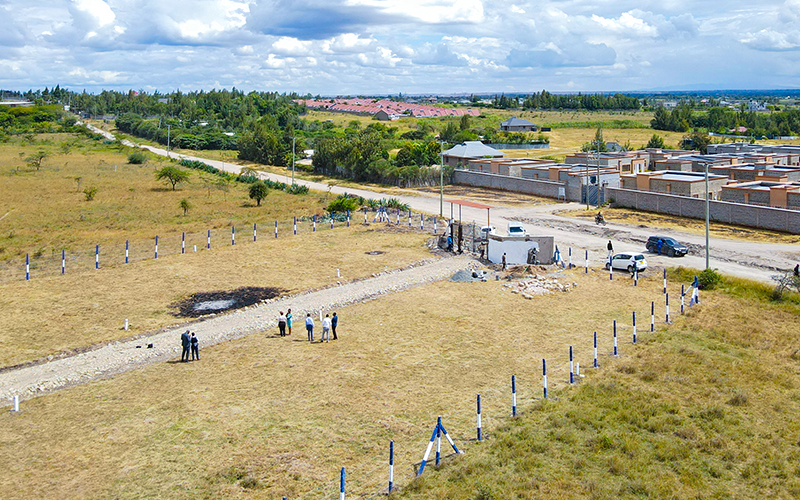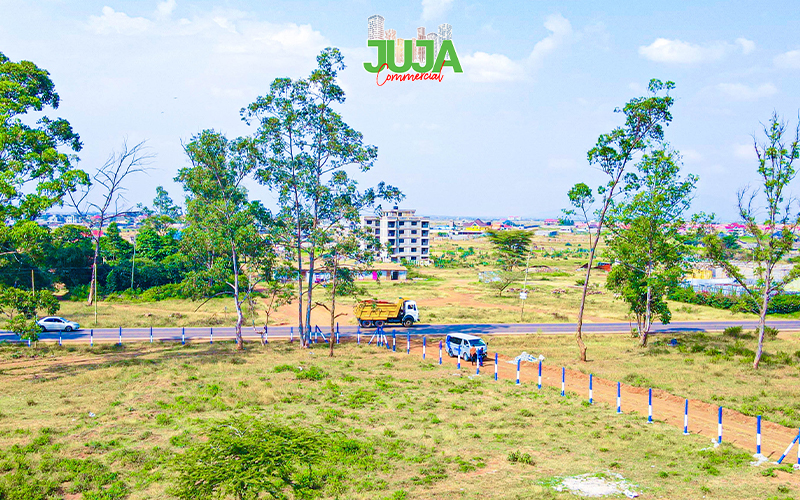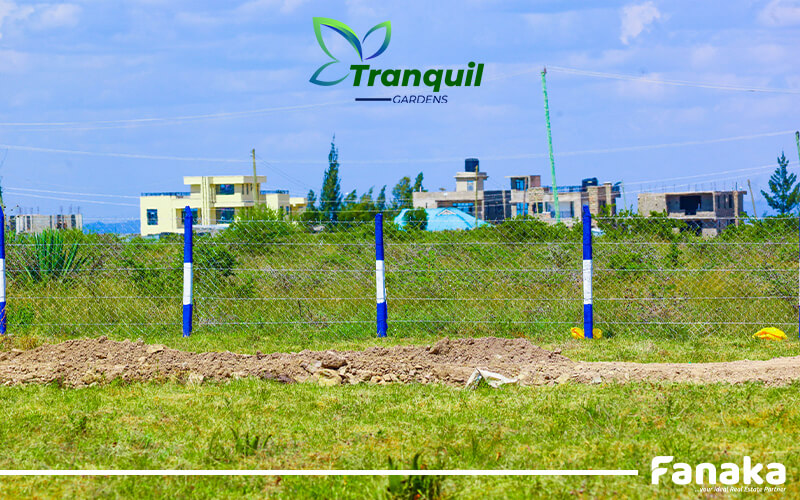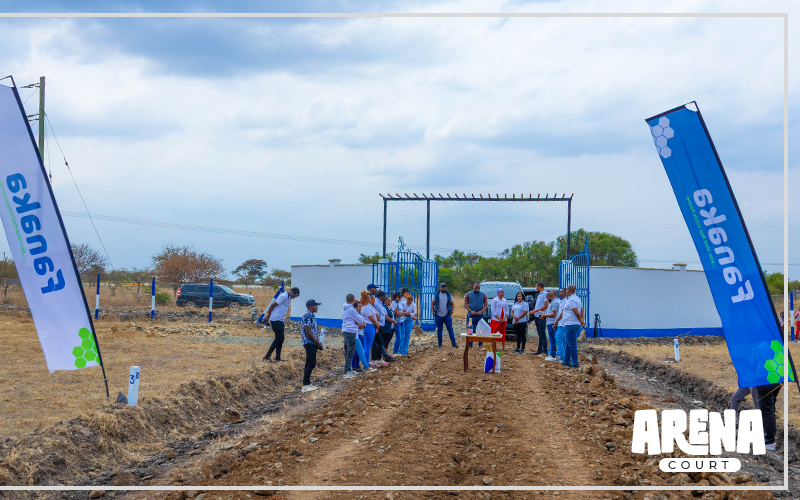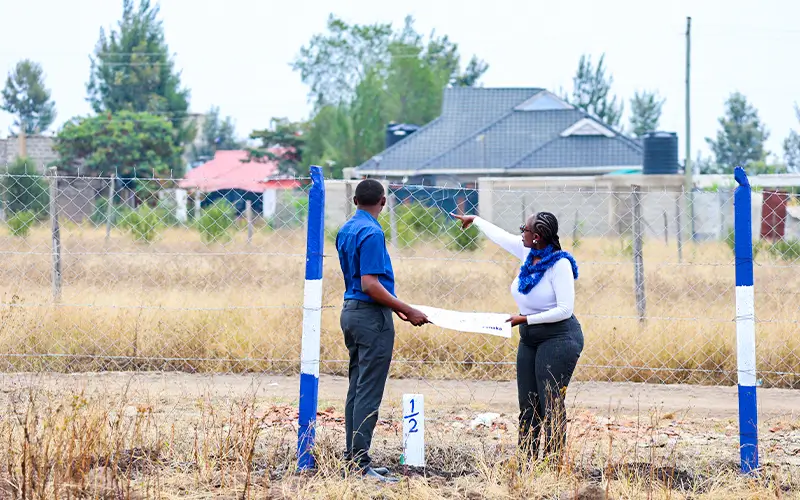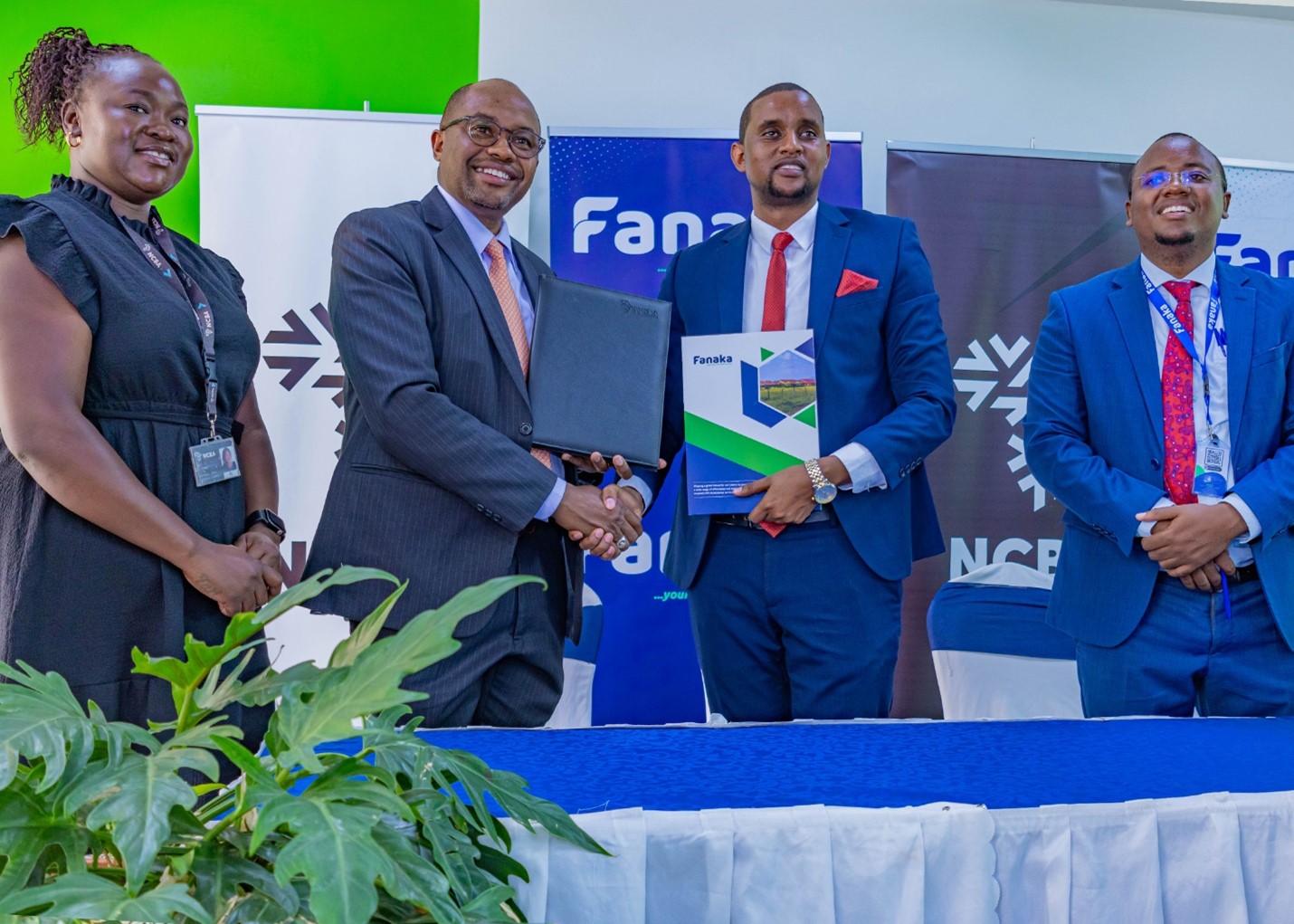
A COMPLETE GUIDE ON THE BEST MORTGAGE PROVIDERS IN KENYA (UPDATED 2025)
Most would agree that owning a house in Kenya today is a significant accomplishment. However, it's expensive and quite a challenge. The cost of land keeps rising, construction material prices, while showing some moderation, remain elevated, and there's more.
Now, imagine a way to make owning your dream house a reality, regardless of your net worth. That's where a mortgage comes in! This comprehensive guide will walk you through everything you need to know about mortgages in Kenya, including:
- What a mortgage means
- What's needed to get a mortgage
- Where to find an affordable mortgage
- Top mortgage providers in Kenya and their current offerings
What is a mortgage?
A mortgage is a loan offered by banks and other financial institutions to home buyers. The property is used as collateral for the loan. Most banks will typically require a 20% down payment to get started, though this can vary.
One significant advantage of taking a mortgage is that with each payment, you gradually own a piece of the property. This differs from paying rent, where ownership doesn't accumulate. Taking a mortgage divides property ownership into two parts: equity (what you own) and debt (what the bank owns). With each mortgage repayment, you increase your equity, aiming to fully own the property by the end of the amortization period.
Another benefit of a mortgage is the potential to increase the property's value. For instance, if you take a Ksh 4,000,000 mortgage and sell the property for Ksh 7,000,000, you'd profit Ksh 3,000,000, paying the bank only what you owe them, without sharing the profit.
Statistical Insight: The Kenyan Housing Market in Perspective
Despite the aspiration for homeownership, Kenya faces significant challenges. The homeownership rate in Kenya has seen a slight decline from 64% in 2013 to 61% in 2024. This drop is more pronounced in urban areas, where only about 21.3% of urban dwellers owned their homes as of 2020, compared to a national average of 61%. This stark contrast highlights the accessibility challenges in urban centers.
The uptake of mortgages also remains remarkably low. By the end of 2023, there were approximately 30,015 active mortgage accounts in the entire country, which translates to less than 0.12% of working adults having a mortgage. This low uptake is primarily due to:
- High Interest Rates: While government initiatives are aiming for lower rates, average commercial mortgage rates were around 14.3% in 2023, with some reaching 18.6%.
- Low Income Levels: A significant portion of the Kenyan population earns less than Ksh 50,000 per month, making it difficult to qualify for and comfortably repay a mortgage.
- Expensive Property Prices: Particularly in urban and developing suburban areas, property prices are often out of reach for the average earner.
- Hidden Costs: Beyond the loan amount and interest, additional expenses like legal fees, valuation charges, stamp duty, and insurance can add 10% or more to the total property cost.
- Lack of Awareness and Financial Literacy: Many potential homeowners are deterred by a lack of understanding of the mortgage process and fear of long-term debt.
These statistics underscore the ongoing need for more accessible and affordable housing finance solutions in Kenya.
READ ALSO: KITENGELA PLOTS FOR SALE
Types of mortgages in Kenya:
There are two primary types based on the rate paid on the loan:
- Floating rate mortgage: Also known as a variable or adjustable-rate mortgage, this type fluctuates based on market rates. The mortgage rate changes with the market, potentially offering cheaper rates but carrying more risk compared to fixed rates.
- Fixed-rate mortgage: This mortgage type has a constant interest rate throughout the loan term. While generally safer and offering predictable payments, it can often be more expensive compared to variable rates, with a risk of being locked into a higher rate if interest rates fall significantly.
Types of loans you might be offered:
To cater to different borrowers, financial institutions offer varied loans, including:
- Owner-occupied residential mortgage: For individuals purchasing a home they intend to live in.
- Investment residential mortgage: For those buying property primarily for rental income or future sale.
- Construction loan: For building a home from the ground up.
- Equity loans: Using accrued equity in an existing property to secure additional funds, usable for various purposes.
Top Mortgage Providers in Kenya (Updated 2025):
Here are some of the prominent mortgage providers in Kenya. Please note that interest rates are highly dynamic and can change based on market conditions, the Central Bank Rate (CBR), individual borrower profiles, and specific product offerings. The figures below are indicative and based on recent available data. As of April 8th, 2025, the Central Bank Rate (CBR) was reduced to 10%, which may positively influence lending rates.
Bank/Provider | Indicative Annual Interest Rate (as of mid-2024 / early 2025) | Notes |
|---|---|---|
Kenya Mortgage Refinance Company (KMRC) Partner Banks | ~7.0% (for affordable housing loans) | KMRC lends to Primary Mortgage Lenders (PMLs) at 5.0%, allowing them to offer mortgages at significantly lower rates, primarily for affordable housing loans (capped at Ksh 4M in major towns, Ksh 3M in others). |
UNFCU (United Nations Federal Credit Union) | Variable: 5.90%–7.40% | Specifically for qualified UN staff in Kenya and other eligible UNFCU members. Loans are in USD. |
NCBA Bank | 9.5% to 9.9% | Known for competitive rates and partnerships (e.g., with Fanaka). |
Stanbic Bank | 9.5% to 11% | Consistently among the more competitive options. |
Housing Finance Group (HFC) | ~12.2% | A dedicated mortgage finance institution. |
Standard Chartered Bank | ~12.5% | International bank with a b presence in Kenya. |
Citibank Kenya | ~12.9% | Offers various banking solutions, including mortgages. |
Commercial Bank of Kenya (CBK) | ~13.3% | One of the larger local banks. |
KCB Bank | ~13.4% | A leading bank in Kenya, actively engaging in partnerships for mortgage uptake (e.g., with Superior Homes Kenya). |
Co-operative Bank | ~15.1% (Good Homes Mortgage arm) | Offers tailored mortgage products. |
Consolidated Bank | ~15.4% |
Please note: The figures are estimates and may vary over time. It's crucial to contact the banks directly for the most current rates and specific product details. The Central Bank Rate (CBR) significantly influences commercial bank lending rates; with the CBR at 10% in April 2025, some banks may adjust their offerings accordingly.
Fanaka and NCBA Partner to Simplify Your Homeownership Journey
Owning a home in Kenya is a dream for many, but navigating the process of financing can often feel like an obstacle course. Fortunately, there's good news for aspiring homeowners! Fanaka Ltd., a leading real estate company based in Nairobi, has partnered with NCBA, one of Kenya's most respected banks, to streamline the financing process and make your dream home a reality.
Why This Partnership is a Game Changer:
- Simplified Financing: Fanaka's experienced team will work closely with NCBA to guide you through the entire financing process. They will help you understand your eligibility for different mortgage products and navigate the paperwork, saving you time and hassle.
- Competitive Rates: Through NCBA's extensive portfolio of mortgage products, you're more likely to secure a loan with attractive interest rates and flexible repayment terms that suit your budget.
- One-Stop Shop Convenience: Having both your real estate agent and lender under one roof eliminates the need to coordinate between different parties. This streamlined approach ensures a smoother and more efficient home buying experience.
- Expert Guidance: Fanaka's market knowledge combined with NCBA's financial expertise empowers you to make informed decisions throughout the process. You'll benefit from valuable insights into the property market and personalized guidance on securing the best possible mortgage deal.
Through this partnership, NCBA Bank will provide mortgage loans to both salaried and non-salaried customers of Fanaka. Salaried buyers will benefit from payment terms extending up to their retirement age, while non-salaried customers will enjoy terms up to the age of 65.
In addition, NCBA will offer the Buy and Build financing option, covering up to 100% of the costs. This facility allows customers to purchase a piece of land and construct a home simultaneously, making the process seamless and efficient. For those who already own land, NCBA's construction solution will help turn their vision into reality. This comprehensive support ensures that all customers have the financial tools needed to achieve their real estate goals.
Why You Should Take Advantage of This Partnership:
- Reduced Stress: The combined efforts of Fanaka and NCBA take the weight off your shoulders. You can focus on finding your dream home while they handle the complexities of financing.
- Faster Approval: Streamlined communication between the realtor and lender can expedite the loan approval process, allowing you to move into your new home sooner.
- Increased Access to Properties: With NCBA's backing, you may be eligible for mortgages that open doors to a wider range of properties, giving you more choice in your home search.
Don't let the challenges of financing hold you back from achieving your dream of homeownership. With Fanaka and NCBA as your partners, the path to owning your own home is clearer and more accessible than ever. Contact Fanaka today and take that first step towards turning your dream into reality.
Should you need to start or require more information about the partnership and how to get started with either a plot purchase loan, buy and build product, or the easy build option from NCBA, feel free to reach out to us through [email protected].
Market Trends: Land and Construction Material Prices (2025)
Understanding current market trends is crucial for aspiring homeowners:
- Land Prices: Land prices in Kenya continue to be a significant factor. In Q1 2025, Nairobi's satellite towns experienced a higher growth rate in land prices (2.4%) compared to the city suburbs (1.7%). This indicates a growing demand for more affordable options outside the immediate city center. Areas like Kiserian, Juja, and Thika have shown b price appreciation, driven by relative affordability and ongoing infrastructure development. Ruaka, however, saw a slight price contraction, despite having some of the highest per-acre prices.
- Construction Material Prices: The good news for builders is that construction costs generally saw a dip in Q1 2025. This was led by notable declines in the prices of steel and reinforcement bars, bitumen, and asphalt products. However, some core materials like cement, sand, and quarry products experienced modest price increases. While there's some relief from the previous year's high costs, overall construction material prices remain elevated compared to pre-pandemic levels. This means that while some inputs are cheaper, the overall cost of building can still be substantial.
These trends highlight the evolving landscape for property acquisition and construction in Kenya, emphasizing the importance of informed decision-making and strategic partnerships.
